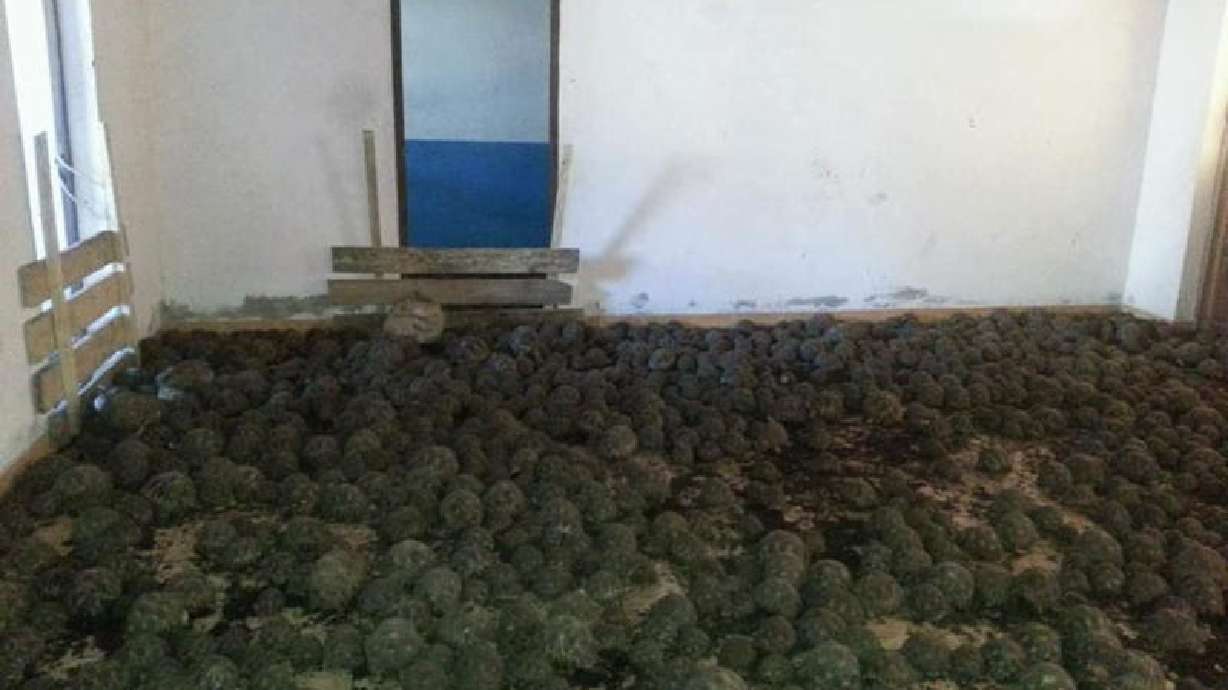Estimated read time: 3-4 minutes
This archived news story is available only for your personal, non-commercial use. Information in the story may be outdated or superseded by additional information. Reading or replaying the story in its archived form does not constitute a republication of the story.
SALT LAKE CITY — On April 10, police discovered 10,000 endangered radiated tortoises covering the floors of a private residence in Toliara, Madagascar, where officials believe the animals were being collected for the illegal pet trade in Asia.
The Hogle Zoo, which has worked with the people of Madagascar for years to help save the animals from extinction, sent a veterinary technician, conservation biologist and reptile keeper to help the conservation organization Turtle Survival Alliance rescue the tortoises.
"I don't think the word 'overwhelming' comes close to describing what the Turtle Survival Alliance is dealing with here," the organization’s president, Rick Hudson, said in an emailed statement. "We were already caring for 8,000 tortoises in Madagascar. Now that number has more than doubled overnight."
In 2015, the Hogle Zoo and the Turtle Survival Alliance built a conservation center that cares for and rehabilitates confiscated animals. Now, the two organizations are building emergency structures to shade and house the tortoises that were found without access to food or water.
Hundreds of the tortoises have since died from dehydration and illness.
It is still unknown how long the tortoises were in the house. The Madagascan police have made several arrests in connection with the discovery, but no further details about the perpetrators have been released.
The radiated tortoises, found only in Madagascar and small, nearby islands, are especially coveted by poachers and illegal pet traders because of their star-patterned, high-domed shell. Some also believe the tortoises can be eaten, and others say they have medicinal properties.
“It’s an interesting situation over there because (Madagascans’) religious beliefs dictate that they don’t mess with the tortoises at all, but people from outside the area have discovered that people will pay pretty big bucks for (them),” Hogle Zoo spokeswoman Erica Hansen told KSL.com.
The wild radiated tortoise population has declined more than 80 percent in the last 30 years, in part, because of illegal poaching and the pet trade. If they continue declining at the same rate, conservationists believe the reptile will go extinct in the wild in less than two decades.
The radiated tortoise is one of six conservation species (including the polar bear, the orangutan, the African elephant, the Boreal toad and the African lion) over which the Hogle Zoo maintains stewardship.
"We have built these triage centers, but the number of tortoises from this confiscation is so overwhelming that we have to invest more in building new housing, hiring additional staff and security guards and getting food for these animals,” Hogle Zoo vice president and conservation biologist Christina Castellano said in an emailed statement. “We really have to ramp up what we're doing to give them the care they need to survive."
The zoo plans to open an education center in Madagascar designed to aid locals in caring for the tortoises and ending illegal poaching, Hansen said. The center was funded by proceeds from a summer night event called “Zoo Brew” where the Hogle Zoo opened up after hours for adults to look at the animals and buy a beer.
“We save species one drink at a time,” Hansen laughed.












